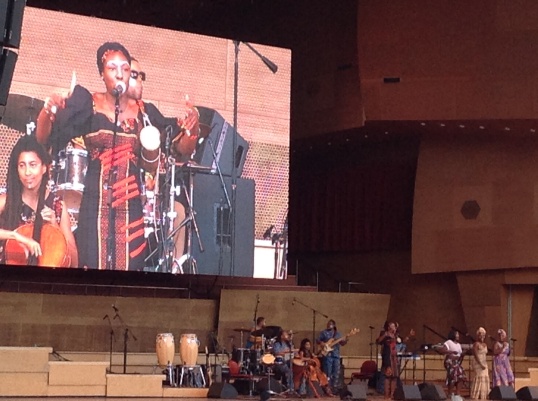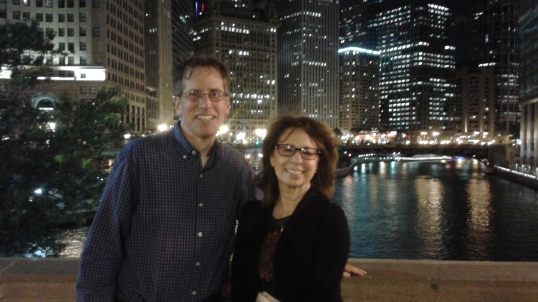SATURDAY July 16, 2016
9:30 AM – 5:00 PM
Two Sides to the United Nations: Working with Public and Private International Law at the U.N. (IIT Chicago-Kent College of Law)
Coordinated by Thomas Mills, et al. and co-sponsored by the International Legal Research Interest Group (ILRIG) of ASIL and the FCIL-SIS. Two specialists, Susan Goard of the UN and Vikki Rogers, Director of the Institute for Int’l Commercial Law at Pace, will engage the audience in an intense full day workshop addressing the major functions of the UN, documentation of the main bodies and specialized agencies, the CISG and its application in international trade, and available UN related research platforms.
SUNDAY July 17, 2016
12:30 PM – 2:00 PM
FCIL-SIS Jurisdictions IG Joint Meeting (Africa, Asia, Latin America, Europe, Indigenous Peoples, Customary & Religious Law, Roman Law) (Hyatt-Water Tower)
Meeting Topics:
- Welcome and Intro (Susan Gualtier, Louisiana State University School of Law Library) – 5 minutes
- European Law: Recent Developments in German Law Related to Asylum and Refugees: A Brief Overview for Law Librarians (Jennifer Alison, Harvard Law School Library) – 20 minutes
- Latin America: Cuban Legal Research Guide (Julienne Grant, Loyola University Chicago Law Library, et al.) – 10 minutes
- Africa: Updates of the Digitization Case Law Project from South Western Nigeria (Yemisi Dina, Osgood Hall Law School Library) – 20 minutes
- Indigenous Peoples: Indigenous Peoples and DNA Testing: Friend or Foe? (Steven Perkins, Greenberg Traurig, LLP) – 20 minutes
- Individual Interest Groups business meetings – 15 minutes
4:00 PM – 5:00 PM
Asian Legal Information in English: Availability, Accessibility, and Quality Control (Hyatt-Columbus EF)
Coordinated by Alex Zhang, participants will learn about resources, tools, and tips for finding existing official ENG translations of primary legal materials in major Asian jurisdictions, the speakers will address the pros and cons of ENG translations and how to discern when ENG translation is not readily available.
5:15 PM – 6:00 PM
FCIL-SIS Foreign Law Selectors IG (Hyatt-Comiskey)
Coordinated by Marci Hoffman.
6:00 PM – 6:45 PM
FCIL-SIS Standing Committees Joint Meeting (Publicity Committee, Internships & Exchanges Committee, and Electronic Research IG) (Hyatt-Field)
Meeting Topics:
- Welcome and Introduction (Loren Turner) – 5 minutes
- ERIG: ICRC Customary International Humanitarian Law Database (CIHL database) (Mr. Ismael Raboud, ICRC) – 15 minutes
- ERIG: LOC Indigenous Law Portal (Steve Perkins, Library of Congress) – 15 minutes
- Individual Standing Committees business meetings – 10 minutes
7:00 PM – who knows?
AALL Annual Meeting FCIL-SIS Reading Group (place TBD – stay in touch with Dan Wade at Daniel.wade@yale.edu)
Coordinated and lead by Dan Wade, the group will discuss East West Street: On the Origin of Genocide and “Crimes Against Humanity”
MONDAY July 18, 2016
7:30 AM – 8:30 AM
FCIL-SIS Business Meeting and Breakfast (Sponsored by Bloomberg Law, LexisNexis, Thomson Reuters, and Wolters Kluwer) (Hyatt Wrigley)
3:30 PM – 4:15 PM
FCIL-SIS Teaching Foreign & International Legal Research IG (Hyatt-Michigan B)
Coordinated by Catherine Deane, this meeting will present three substantive presentations:
- Marilyn Raisch (Georgetown University Law Center) will share her experience creating short videos to search databases using Jing
- Alexis Fetzer (Richmond School of Law) will share her experience as a “non”-FCIL librarian proposing an FCIL research course
- Nina E. Scholtz (Cornell Law School) will share her thoughts on teaching an experiential research course for international LLM students.
4:30 PM – 5:30 PM
FCIL-SIS Schaffer Grant for Foreign Law Librarian Recipient’s Presentation – Rhenny Pulungan of Indonesia, currently at U. of Melbourne’s Law School Library will deliver a talk entitled The Legal Research Landscape in Indonesia: Limitations and Possibilities (Hyatt-Columbus GH)
5:45 PM – 6:45 PM
International Attendees Joint Reception (AALL/FCIL/IALL) (Hyatt-Crystal Ballroom C)
TUESDAY July 19, 2016
7:30 AM – 8:15 AM
FCIL-SIS Education Committee and 2017 Summit Task Force Joint Meeting (Hyatt-Skyway 265)
8:30 AM – 9:30 AM
Roman Law, Roman Order, and Restatements (Hyatt-Columbus EF)
Coordinated by Marylin J. Raisch, participants will learn about digitization of historical documentation, assess the role of Roman Law and codification’s impact on American legal taxonomies, explore the influence of Roman Law on Restatements.
9:45 AM – 10:45 AM
Poster #24: Are Self-Paced Pre-Recorded Modules Better than Live Instruction for Teaching Basic Legal research Concepts? (Exhibit Hall)
Created by Lucie Olejnikova and Jane Bahnson, this poster session will be on display starting Sunday, July 17, 2016 through Tuesday, July 19, 2016. During the scheduled TUE session, presenters will be available to answer questions. This poster features a study carried out in Duke’s LLM Legal Research and Writing Course intended to measure students’ information retention when subject material was delivered in traditional live in-class lecture as compared to when the same material is delivered via self-paced pre-recorded online module.
11:00 AM – 12:00 PM
Vanishing Online? Legal and Policy Implications for Libraries of the EU’s “Right to be Forgotten” (Hyatt-Columbus KL)
Coordinated by Michael G. Bernier, the attendees will be brought up to date on the status of data protection laws and their allocation outside the EU, understand the obligations under the “right to be forgotten” principle for libraries making personal info public, and consider the line between protection personal privacy against the public’s right to access data.

 Following the introduction to AALL came the networking fun: a round of speed networking and a visit to the marketplace. The speed networking (set up like a speed dating event) was a surprisingly effective icebreaker. There were two rows of chairs facing each other, and after three minutes, people sitting on one side moved to the next chair. The most interesting aspect of this was the wide variety of people I met in thirty minutes, spanning the range of AALL membership. The marketplace is essentially an exhibition of volunteer opportunities for AALL: SIS, regional/local chapters, and Law Library Journal/Spectrum. Here I first met the incomparable Daniel Wade handing out information on FCIL-SIS and the Schaffer Grant. One of the most interesting aspects of the marketplace was the interaction between all the various tables, showing that you don’t have to limit yourself to one area of AALL.
Following the introduction to AALL came the networking fun: a round of speed networking and a visit to the marketplace. The speed networking (set up like a speed dating event) was a surprisingly effective icebreaker. There were two rows of chairs facing each other, and after three minutes, people sitting on one side moved to the next chair. The most interesting aspect of this was the wide variety of people I met in thirty minutes, spanning the range of AALL membership. The marketplace is essentially an exhibition of volunteer opportunities for AALL: SIS, regional/local chapters, and Law Library Journal/Spectrum. Here I first met the incomparable Daniel Wade handing out information on FCIL-SIS and the Schaffer Grant. One of the most interesting aspects of the marketplace was the interaction between all the various tables, showing that you don’t have to limit yourself to one area of AALL. By far the best perk is the included trip around the city. For this year’s CONELL, we went on a boat tour of Chicago run by the Chicago Architecture Foundation. An hour and a half trip around the Chicago River provided stunning views and an interesting accounting of architecture and water use along the river.
By far the best perk is the included trip around the city. For this year’s CONELL, we went on a boat tour of Chicago run by the Chicago Architecture Foundation. An hour and a half trip around the Chicago River provided stunning views and an interesting accounting of architecture and water use along the river.
 For those who opted to spend the evening at the West party last night, I’m afraid you missed out. There was a Nigerian dance party at Millennium Park—an experience that now ranks near the top of my personal list of best musical performances. The king of juju music, King Sunny Adé, put on a show that was truly electric, and Chicago’s entire Nigerian population was there to join in. Adé’s music, which has strong Yoruba influences, was intoxicating and scattered with complex rhythms that quite obviously have deep cultural roots. Local Nigerian-American singer Ugochi, who performed with the band The Afro Soul Ensemble (A.S.E.), was the opening act (also excellent). With the Chicago skyline as a backdrop, it doesn’t get much better than this. A few other FCIL colleagues made it to this incredible concert (Sergio Stone and Victor Essien), and they were as mesmerized as I was.
For those who opted to spend the evening at the West party last night, I’m afraid you missed out. There was a Nigerian dance party at Millennium Park—an experience that now ranks near the top of my personal list of best musical performances. The king of juju music, King Sunny Adé, put on a show that was truly electric, and Chicago’s entire Nigerian population was there to join in. Adé’s music, which has strong Yoruba influences, was intoxicating and scattered with complex rhythms that quite obviously have deep cultural roots. Local Nigerian-American singer Ugochi, who performed with the band The Afro Soul Ensemble (A.S.E.), was the opening act (also excellent). With the Chicago skyline as a backdrop, it doesn’t get much better than this. A few other FCIL colleagues made it to this incredible concert (Sergio Stone and Victor Essien), and they were as mesmerized as I was.
 Jennifer Allison from the European Law Interest Group kicked off the meeting with an informative discussion of recent changes to German asylum law. First, Jennifer explained that asylum for the politically persecuted is a constitutional right in Germany, under Grundgesetz article 16a. She highlighted three 2016 laws related to German asylum law:
Jennifer Allison from the European Law Interest Group kicked off the meeting with an informative discussion of recent changes to German asylum law. First, Jennifer explained that asylum for the politically persecuted is a constitutional right in Germany, under Grundgesetz article 16a. She highlighted three 2016 laws related to German asylum law: Jennifer also provided a handout with various German law sources and other helpful sources, which can be found on her
Jennifer also provided a handout with various German law sources and other helpful sources, which can be found on her  In the discussion that followed the update, it was noted that LLMC is currently working on digitizing approximately 200 Cuban materials, and that the National Library of Cuba has joined to cause and is helping find rare titles and more materials. Teresa Miguel-Stearns also briefly discussed her recent trip to Cuba.
In the discussion that followed the update, it was noted that LLMC is currently working on digitizing approximately 200 Cuban materials, and that the National Library of Cuba has joined to cause and is helping find rare titles and more materials. Teresa Miguel-Stearns also briefly discussed her recent trip to Cuba. Customary law has a future in the legal system of Nigeria and other African countries. Customary courts are disorganized, but the government is interested. Yemisi noted that the government put a structure together for her to visit.
Customary law has a future in the legal system of Nigeria and other African countries. Customary courts are disorganized, but the government is interested. Yemisi noted that the government put a structure together for her to visit. Finally, Steven Perkins from the Indigenous Peoples Interest Group gave an interesting talk on some of the issues regarding DNA testing of Indigenous Peoples.
Finally, Steven Perkins from the Indigenous Peoples Interest Group gave an interesting talk on some of the issues regarding DNA testing of Indigenous Peoples.







 It’s
It’s